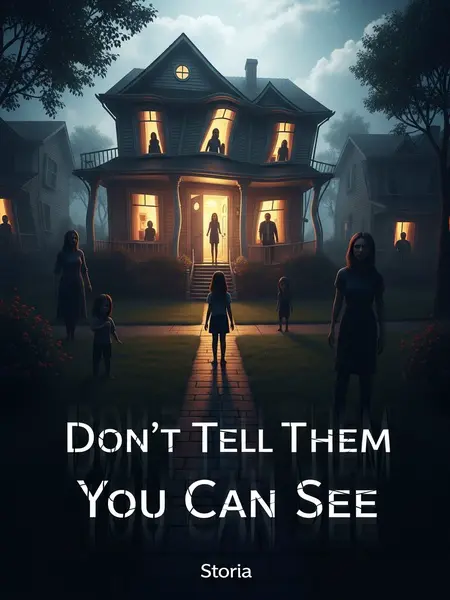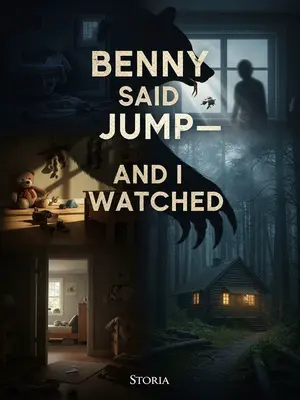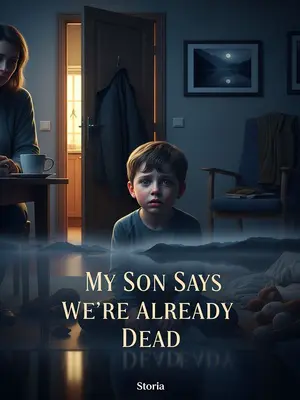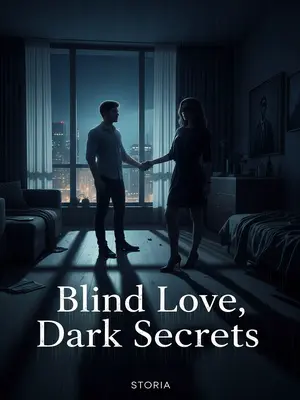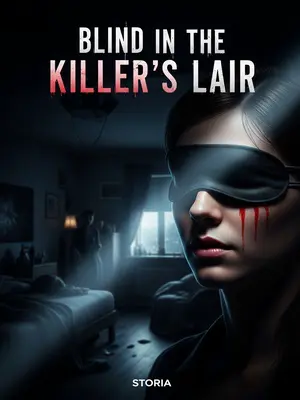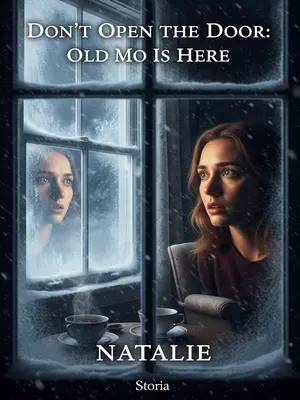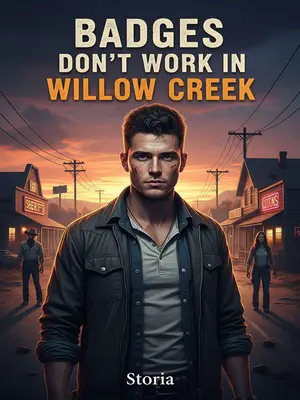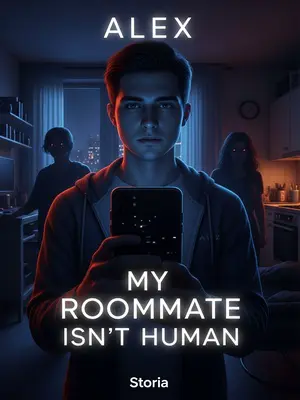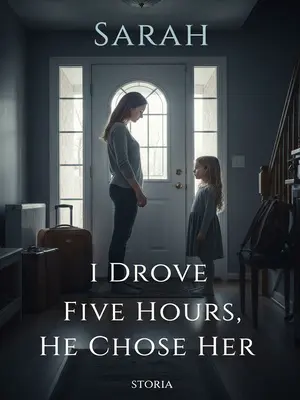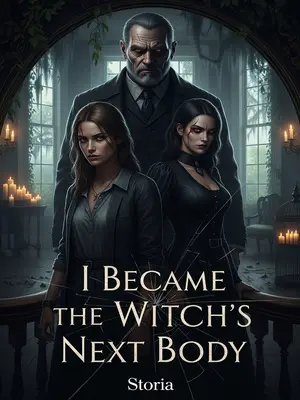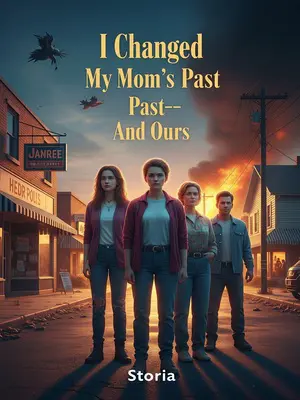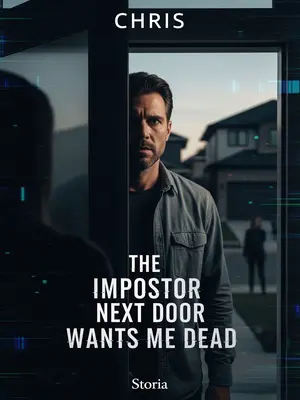Chapter 1: The First Death
You jerked back, heart in your throat. Maybe it was just the shock—some weird brain glitch after all the excitement.
The setting sun filtered through your window, bathing your room in dusky gold. Your eyes hungrily devoured the faded posters on the wall, the neatly stacked books on your desk, the fresh carnation on your bedside table. Only now did you realize how beautiful everything was. You wanted to drink it all in at once.
You ran your fingers over the chipped mug, the familiar scratchy comforter, the glossy magazine covers—touching everything just to prove it was real. Your heart thudded with nervous excitement, like you were seeing color for the first time after years of gray. Your gaze lingered on the basketball poster, the sun making LeBron’s jersey almost glow, and the spicy-sweet scent of the carnation washed over you. The room felt brand new, even though you knew every inch by touch. You wanted to memorize every little mess: the cup with the chipped rim, the comforter half-falling off the bed, the half-unpacked moving box you’d ignored for weeks. Everything looked more alive than ever.
Ring—ring—ring—
After a while, your joy was interrupted by the ringing of the alarm clock. The red numbers blinked 6:00 PM. Crap, you’d lost track of time again. The sky outside was already deepening into twilight.
You rubbed your eyes, half-expecting everything to blur, but the numbers stayed sharp. For a moment, you felt like a kid again, hoping to squeeze one more hour of summer from the day.
You planned to go downstairs for a walk, to see the beautiful twilight, to watch the people coming and going on the street.
You pictured the low hum of traffic out on Maple Drive, neighbors’ voices drifting up from the courtyard. Maybe you’d catch the sunset bouncing off Mrs. Alvarez’s red minivan, or see the neighbor’s dog, Moose, chasing his tail on the lawn. For the first time in years, you could actually see them, not just hear them.
Before leaving, you glanced at the white cane leaning in the corner, but decided not to take it.
You hesitated, your hand hovering. You mentally replayed the risk: the stumble on the curb last fall, the time Mrs. Alvarez had to walk you across Maple after you tripped. Your mind flashed to the embarrassment, the way people stared. But you shook those memories off, pushing aside the worry in favor of freedom. You wanted to walk like everyone else—see with your own eyes, no cane, no label.
But before you could open the door, your parents pushed it open and came in. Although it was odd they got off work earlier than usual, you didn’t dwell on it. Excited, you blurted out that you’d regained your sight. They lit up, and even prepared a lavish dinner—roast chicken, mashed potatoes, mac and cheese, and a big slice of apple pie for dessert.
Your dad did his happy-dad thing: a big bear hug, his aftershave strong and familiar. Mom’s eyes shined with pride; for once, she didn’t nag you about sitting up straight or wiping your feet. The kitchen filled with the smell of roasted chicken and buttery mashed potatoes. They even brought out the blue-and-white plates reserved for birthdays. When Mom set that huge slice of apple pie in front of you, you realized she’d made it herself—her crust always a little too thick, but still perfect.
You ate happily and told your parents things you were usually too shy to say.
You rambled about the colors in the room, how your old basketball trophy looked in the light, even the silly crack in the ceiling you’d always wondered about. For the first time, the words just poured out—about school, about missing their faces, about how scared you’d been when you lost your sight. You felt a little embarrassed by how much you were sharing, but you couldn’t stop.
They just listened, nodding silently, saying little.
Dad’s smile didn’t quite reach his eyes. Mom’s hand squeezed yours too tightly, like she was holding on for dear life. Maybe they were just overwhelmed, you thought, or maybe they didn’t know what to say. You tried to let it go, focusing on the warmth of the moment.
Maybe because you were so happy, even as you drifted off to sleep that night, a smile lingered on your lips.
You lay in bed, full and content, wrapped in your favorite old sheets. For once, no anxiety gnawed at your stomach. You drifted off to the faint sound of the neighbor’s TV through the wall, thinking tomorrow could only get better.
In the haze of half-consciousness—maybe a long time had passed, or just a moment—
you opened your eyes again. The gentle orange light was in front of you. You were sitting at your desk, lost in thought.
The air felt thick, like before a summer thunderstorm, and a strange, heavy silence pressed in. You wondered if you’d dreamed the whole dinner, the laughter, the relief. But everything in the room seemed exactly the same—down to the flower on the table and your shadow stretching across the carpet.
A voice suddenly echoed in your mind: "Don't tell them you can see."
You blinked at the alarm clock. This time, it read 5:45 p.m.
This was your first death.
A chill shot down your spine, sweat prickling your skin. Your mouth felt dry, as if you’d been asleep for days. You tried to swallow, but the lump in your throat wouldn’t budge. For a second, you couldn’t move at all, the numbers on the clock burned into your mind.
This time, you clearly heard the voice. Dazed, you quickly asked, "Who are you?"
No response.
You waited, holding your breath, but there was only the tick-tick of the wall clock and the low buzz of the desk lamp. A strange urge made you look over your shoulder, as if someone might be standing right behind you.
You swept your gaze around the room. Something was off.
You searched for the familiar—a missing scratch on the floor, mismatched drawer knobs, the tiny details only you would notice. But everything felt staged. Too perfect, too neat. The air was different, too—too still, like a model home where nothing was lived in.
For example, the poster on the wall showed LeBron James shooting. You distinctly remembered LeBron holding the ball with both hands, but in the picture, he only had one. The books on your desk were open, but the words inside were blurry, with huge blank spaces and typos.
You blinked and squinted, but the image didn’t change: LeBron’s arm gone, the books like broken printer paper—letters dropped, lines missing. You reached to trace the spines, searching for the old braille bumps, but the sensation was wrong, rubbery and unreal. Pressure built behind your eyes, like staring at a computer screen for too long in the dark.
Just as you realized something was wrong, the alarm clock rang again.
The bell echoed in the empty room. Though the window was tightly shut, a deep chill crept in.
A draft brushed your bare feet, even though the heater should have kicked on by now. Goosebumps crawled up your arms. You pulled your hoodie sleeves over your hands, but it didn’t help.
It was as if an invisible wind was blowing through the glass.
You shivered, hearing the glass creak slightly in its frame. The sun was nearly gone, leaving the room in a hazy blue-gray, shadows pooling at the edges of your vision.
The time reached 6:00 p.m. again.
This time, you didn’t go out. After calming yourself, ten minutes passed.
You counted the seconds in your head, listening for every creak and distant thump in the pipes. Your fingers tapped a restless rhythm on the desk, desperate for some sign of normal life—laughter from the neighbors, the rumble of the elevator, anything.
Strangely, during that time, your parents did not return.
You checked your phone for a text, though you knew the cell service sucked in the apartment. Nothing. The silence stretched, heavy and uneasy. You found yourself longing for even the most awkward small talk.
You began to wonder if you were just being paranoid. Maybe what happened before was only a dream. So, you decided to go downstairs for a walk.
You took a deep breath and rehearsed the familiar motions—hand on the doorknob, counting steps to the elevator, ready to play the part of the careful, cautious blind kid. You told yourself it was all in your head. It had to be.
But as soon as you grabbed the doorknob, the door opened.
Your parents pushed it open and entered. You looked at each other, and everything that followed happened as if on script. You told them your vision had recovered, they prepared a big dinner, but under their enthusiastic gazes, you ate in silence, uninterested, not sure what you were thinking.
The food tasted bland, textureless, the warmth from before gone. Your parents’ eyes seemed too bright, their smiles fixed. They watched you a second too long every time you looked up, and their hands moved in stiff, mechanical ways. The dinner felt like an audition, each of you playing a part you only half-remembered.
Chaotic thoughts tangled in your mind, leaving you mentally exhausted.
You ran your tongue over your teeth, staring at the empty plate. It felt like your brain was a ball of tangled Christmas lights—nothing lined up right. The more you tried to make sense of things, the more lost you became.
That night, you tossed and turned, unable to sleep. When the moon was high, half asleep, you heard the door open.
The hinges groaned, sharp and slow. You barely dared to breathe, pressing yourself deeper into the mattress as the sound grew closer. Shadows danced across the ceiling, and your heart stuttered in your chest.
You squinted, and in the dimness, saw a shadow walking toward you against the light.
It moved unnaturally, jerky, as if the body were being operated by someone who didn’t quite know how it worked. You strained to see more, but your eyelids were heavy, your mind fuzzy with fear and exhaustion.
Your throat ached, followed by the pain of suffocation. You struggled, writhed, and your consciousness slipped into darkness.
You tasted pennies and static, your lungs burning as you clawed at the darkness. Your fingers scrabbled for air, your legs kicking at the sheets. Your last thought was a silent scream, trapped behind your sealed lips, as the world faded to black.
……
You suddenly opened your eyes, gasping for breath, hands clutching your throat, heart pounding.
The violent beating in your chest told you that you were far from calm.
You tried to steady your breathing, focusing on the worn patch on your desk, the soft click of the ceiling fan. You pressed your palm against your chest, feeling the rhythm slow, just barely.
A voice sounded again in your mind: "Don't tell them you can see."
Panic-stricken, you looked at the alarm clock. Once again, it read 5:45 p.m.
This was your second death.
This time, you noticed every painful detail—the ache in your throat, the way your heart refused to settle. You swallowed, tasted copper, and the sharp, metallic tang brought it all rushing back: dying, waking, and dying again. There was no more room for denial. This was real. And you had to figure out what came next.
The real pain made you no longer doubt the reality of dying and coming back, so you began to consider some questions.
First, who killed you? Your dad, your mom, or someone else?
Second, why would someone want to kill you?
Third, what was going on with the death loop and all the strange occurrences?
Finally, and most importantly: what should you do?
You couldn’t start with the first few questions, so you had to begin with the last and think about how to respond.
You tapped your fingers nervously on the edge of your desk, thinking back on every moment since you’d woken up. Nothing made sense, but you needed a plan, even if it was just to stay alive one more night.
First, you tried calling out to the voice in your mind, but got no response. Then you decided to follow its advice and continue pretending to be blind, making no sudden moves.
You muttered into the silence, "Alright, fine. I won’t say a word, happy now?" But the voice didn’t answer. The chill in the room only deepened, so you gripped your white cane like a lifeline and rehearsed the blank, sightless stare you’d perfected over years. It felt like slipping on an old mask.
You spent a few minutes controlling your expression, picked up the white cane, and prepared to leave before your parents came home.
You practiced the careful shuffle to the door, feeling for the groove in the floorboards and the little dip in the doorknob’s brass. You took a few deep breaths, willing your heart to stop jackhammering against your ribs.
You carefully walked to the door, intending to look outside through the peephole.
You brushed your fingers along the wall, the cane tapping out a gentle rhythm. At the door, you stood on tiptoe to reach the peephole, making sure your face stayed slack, eyes unfocused.
The living room was silent, only the second hand of the clock ticking—tick, tick, tick—each sound pounding in your chest.
You held your breath. The dead silence made your heart race.
You listened for the neighbor’s dog, or the elevator down the hall—anything to break the tension. But there was only the relentless tick of the clock and your own ragged breathing.
Your eyes approached the peephole, and you subconsciously swallowed.
You peered through the peephole, pulse pounding. Their faces looked wrong—like bad wax figures under too-bright lights. Two expressionless people stood at the door like mannequins.
They were your parents.
The fluorescent hallway light made their skin look washed-out, almost plastic. Their faces were frozen, shoulders squared. A chill shot down your spine as their empty, glassy eyes stared straight ahead.
You tried to act calm, but saw the man at the door suddenly move, grinning with a strange smile.
The corners of his mouth jerked up, too quickly, too wide—like a cartoon gone wrong. Your breath caught in your throat.
Suddenly, an eye appeared at the peephole, staring straight at you through the door.
You recoiled, stumbling back into the dresser. Your heart slammed against your ribs as if trying to escape. The world seemed to narrow, darkness pressing in.
You jumped, your heart seeming to stop for a moment.
A chill shot down your spine, sweat prickling your skin. You gripped the cane so tightly your knuckles ached. You could taste fear, metallic and sharp, on your tongue.
In a burst of courage, you straightened up and opened the door.
Your fingers trembled as you twisted the knob, but you forced yourself to stand tall, swallowing the fear. You squared your shoulders like you’d seen your dad do after a long day, trying to channel some of that courage.
Your parents stood there, silent and motionless, as if they had never moved.
Their eyes didn’t blink. The only sound was the faint hum of the fridge from the kitchen. You nodded politely, trying to keep your hands from shaking, and slipped past them into the hallway.
You used your white cane to feel your way, pretending not to see them.
You moved slowly, gaze fixed on the floor, listening for the slightest sign of movement behind you. Every muscle in your body screamed to run, but you kept up the act.
But behind your back, where you couldn’t see, they turned their heads stiffly, inch by inch, their gazes fixed on you.
The hair on the back of your neck stood up. You could feel their eyes burning into your back, heavy and cold. It took everything you had not to turn and look.
You touched the stair railing, inexplicably relieved, thinking you could finally go downstairs.
The wood felt cool and solid under your palm—a small piece of reality to cling to. You took a deep breath, almost daring to hope.
But in the next instant, you felt a strong force shove you from behind.
You tumbled down the stairs, losing consciousness before you could even feel pain.
Your body twisted in midair, the world spinning. There was a burst of bright white pain—and then nothing at all.
……
You opened your eyes. Again. And this time, you weren’t sure you wanted to.
